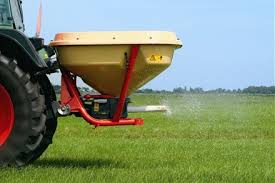 The Victorian WorkCover Authority released the latest figures showing that farm injury claims have decreased by more than 14 percent for the past 12 months and the lowest reported for the last 10-year period.
The Victorian WorkCover Authority released the latest figures showing that farm injury claims have decreased by more than 14 percent for the past 12 months and the lowest reported for the last 10-year period.
In 2013, farmers and their employees have made a total of 401 claims, which is around a 14-percent drop from the 2012 claims that were recorded at 467.
Regardless, farming still remains among the most high-risk industries in the region. And over the last ten years, workplace incidents on Victorian farms claimed the lives of 53 employees, while another 4,600 employees or farmers were seriously injured since 2004.
Len Neist, VWA executive director of health and safety, expressed his concern about the number of claims remaining far too high despite the significant decrease in claims made for injury.
Neist further said, “A farm is just like any other workplace, and farmers need to ensure the same proactive approach to safety.” He explained that although the number of reported injuries on the region’s farms is reported to be the lowest for the past decade, he is still concerned about the more than 400 injuries reported to have occurred the previous year. He emphasised the need for farmers and the rest of those working on farms to be vigilant especially when it comes to being keen about their safety in the workplace.
A large percentage of the farm-related injuries reported in 2013 were those for body-stressing injuries including sprains and strains and injuries where employees and workers were hit by a moving object. Twenty-two percent of the injuries covered those that included falls, trips, slips, and similar other injuries.
In the report, Neist identified the most common safety issues to include untidy workshops, improperly stored chemicals, manoeuvring vehicles inattentively, and unsupervised machinery. He thus explained that the key to maintaining safety in the farm is effective planning and the use of the proper equipment for every job.
Neist noted that older farmers remain the most represented in the count of farm fatalities every year; thus, he advised, “It’s important that if you are heading out on the tractor for the day, or fencing in the back paddock, to let someone know where you’ll be.”
The director further mentioned the importance of farmers and workers only doing the work for which they have had the proper training for and the right skills to carry them out correctly. “Specialised services should always be engaged in work, which is outside of the farmers’ expertise or knowledge,” he said.
With the National Farm Safety Week just around the corner, Neist offered the following suggestions for farm safety:
- When planning a day on the land, make sure to let someone know your whereabouts.
- When undertaking maintenance, make sure that all plant and machinery are switched off.
- Have machinery and equipment properly secured and supported when conducting maintenance procedures underneath.
- Properly plan work and get the services of specialists when necessary.
- Workplace housekeeping should be done regularly. Chemicals must be appropriately stored. And spills should be immediately and properly cleaned up.
- Take note of the fumes when working in workshops.
- Be vigilant when handling machinery and manoeuvring vehicles.


